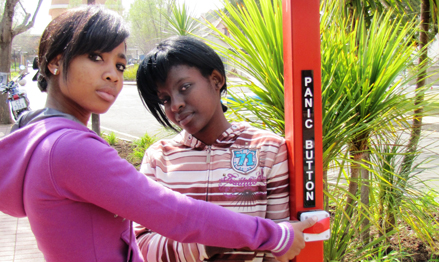Latest News Archive
Please select Category, Year, and then Month to display items
14 June 2024
|
Story Anthony Mthembu
|
Photo Suplied
 Jeremiah Hlahla, a UFS student completing his PhD in Botany at the University of Debrecen as part of an exchange initiative funded by the Erasmus+ Mobility Programme.
Jeremiah Hlahla, a UFS student completing his PhD in Botany at the University of Debrecen as part of an exchange initiative funded by the Erasmus+ Mobility Programme.
As part of an exchange initiative facilitated by the Erasmus+ Mobility Programme, Jeremiah Hlahla, a student at the University of the Free State (UFS), is nearing the completion of his PhD studies at the University of Debrecen in Hungary. Hlahla’s journey, which began in February 2024 and is set to conclude in July 2024, has been a remarkable learning opportunity. “As a first time-traveller to Europe, I have thoroughly enjoyed engaging with people from different countries and cultures,” he said.
The benefits of international collaboration
Hlahla is currently pursuing a PhD in Botany, focusing on plant stress physiology. “My current PhD project investigates the physiological, biochemical and morphological responses of vegetable-type soybean, or edamame, to combined drought and heat stress,’’ he explained. He considers the University of Debrecen the ideal institution to complete his research due to its extensive expertise and resources in similar projects. He noted that his colleagues at Debrecen conduct significant work on plant protection against biotic and abiotic stresses, including salt and drought stress, as well as proteins and amino acids in barley and other legumes.
Given the vast knowledge available on similar projects, Hlahla has found substantial engagement with his work at the University of Debrecen. “Upon arrival, I delivered an introductory lecture presenting my UFS project on the synergistic effects of combined drought and heat stress on the physiology and biochemistry of edamame. It was an engaging session as everyone could relate to my work and asked many questions,’’ he said.
Insights gained from the exchange
Hlahla has also gained valuable lessons that will assist him in his research career, including biotechnology and physiology tools. “I learned how to prepare samples and use high-performance liquid chromatography (HPLC) and reversed-phase ultra-high-performance liquid chromatography (UHPLC) to quantify proteins and amino acids,’’ he said. These techniques are beneficial not only for his current work but will also support future soybean research.
As his experience at the University of Debrecen nears its end, Hlahla reflects on the collaborations and friendships he has formed, which stand out as a significant highlight.
UFS a much safer place
2011-09-20
|

|
First-year students Chuma Nyiko (left) and Mabasa Teleni next to one of the red poles installed on our Bloemfontein Campus.
Photo: Amanda Tongha |
Students and staff at our Bloemfontein Campus can feel even safer, with several initiatives being put in place to ensure their safety.
The stop-and-search actions of the recent past, which are being carried out at all the main gates of our Bloemfontein Campus, seem to be successful, since car theft has decreased on the campus. Mr Willie Frankim, Head of Protection Services, says the stop-and-search actions are carried out sporadically, but have a definite effect on crime at the campus. Mr Frankim says only one vehicle has been stolen in the past two months as opposed to the many more that have been stolen in the past.
The message that safety is viewed in a serious light reaches as far as our university’s parking areas and walkways, which are being patrolled by security staff. Mr Frankim says a security officer is placed in all the large parking areas, while other personnel are distributed across the entire campus, especially at key areas, such as at the library and student centre.
Our university also recently installed more than 30 red poles across the entire campus. Each of these red poles is fitted with a panic button by means of which help can be summoned. Should a student or staff member feel unsafe, all they have to do is press the button and cameras, which are installed in the vicinity, will focus on the pole and Protection Services will send assistance. Twenty five of these poles are already working and ten more still have to be activated.
Students and staff can also phone Protection Services on 051 401 2911 if they feel uncomfortable about their safety. They can use this number, for example, to ask a security officer to accompany them to their car.